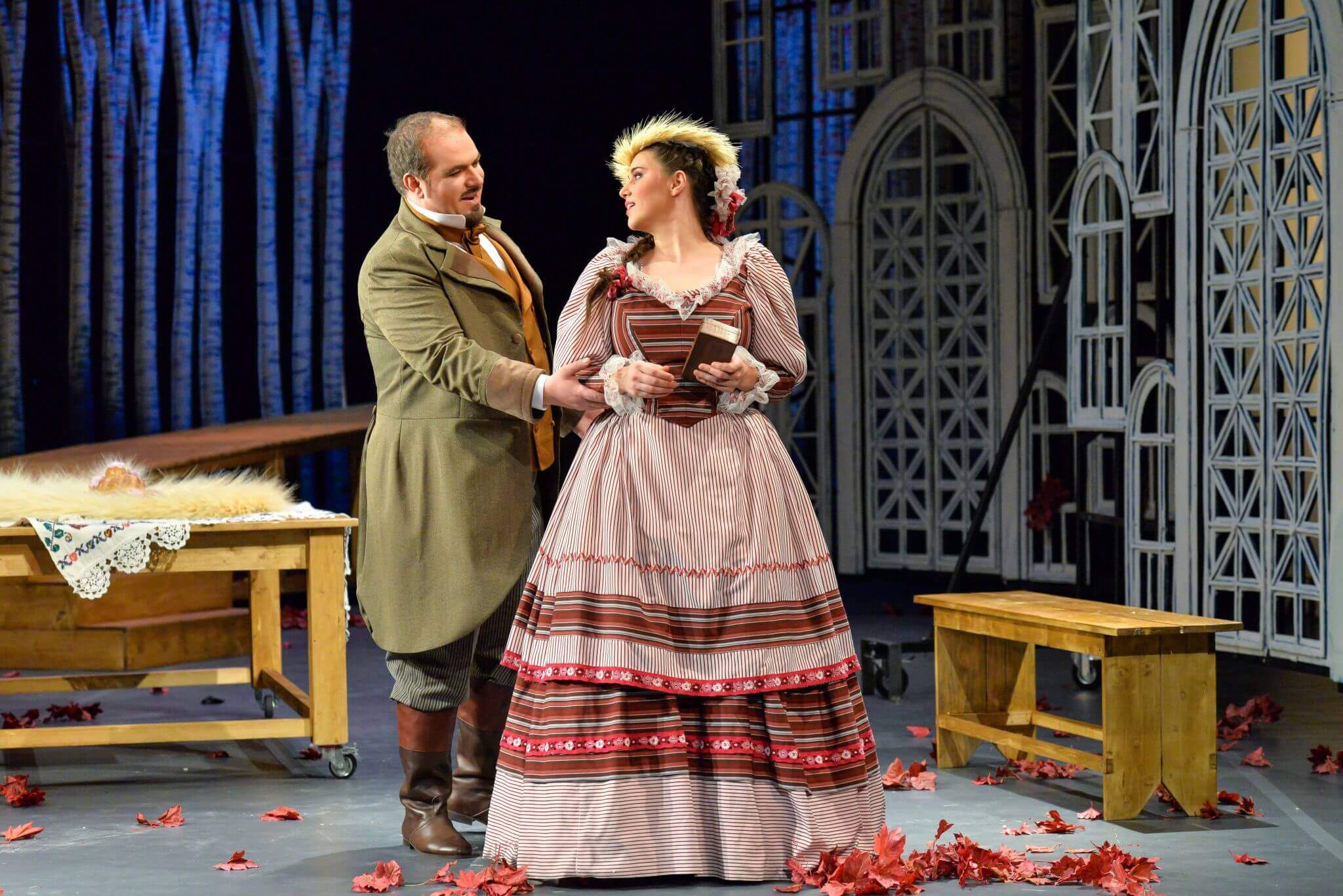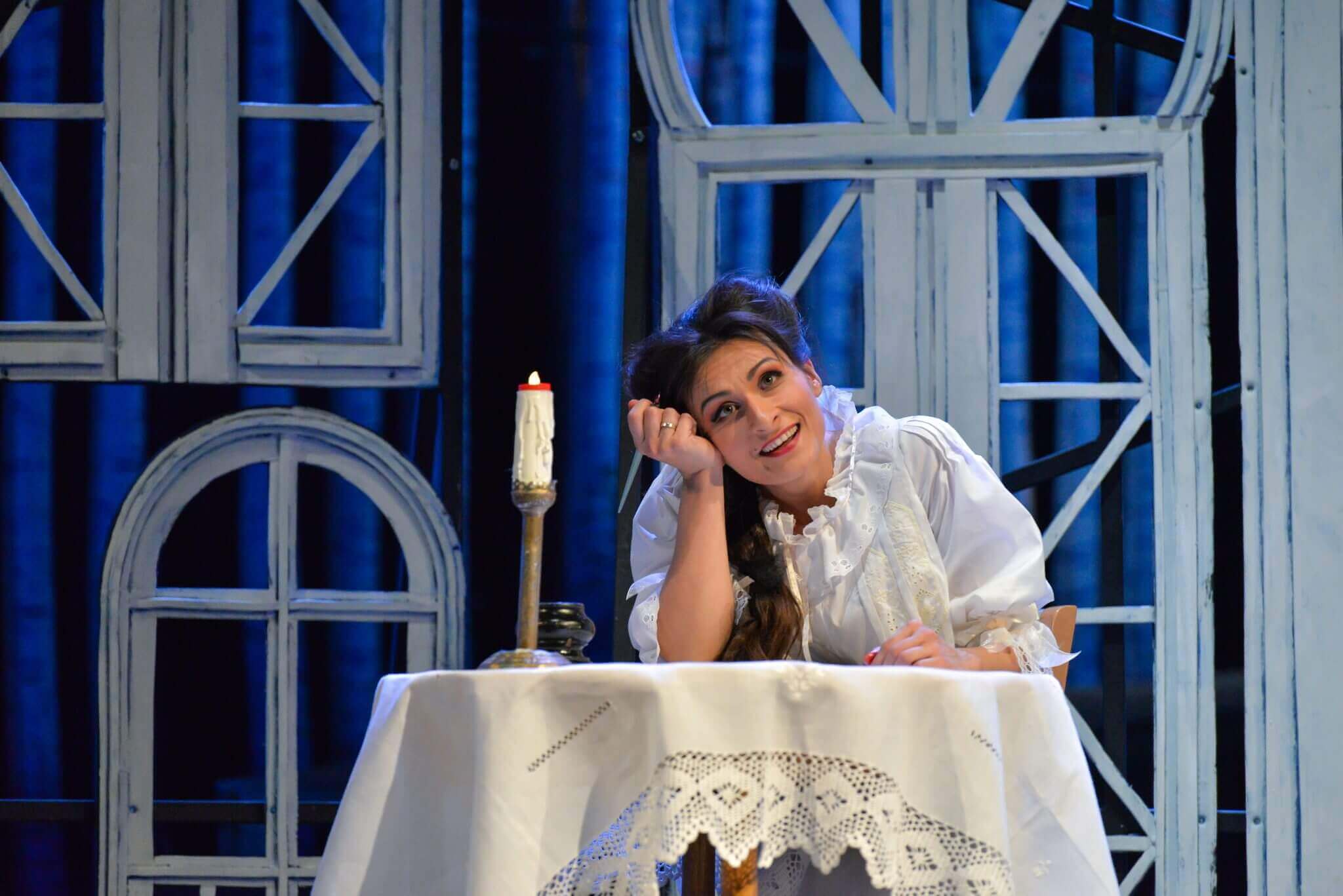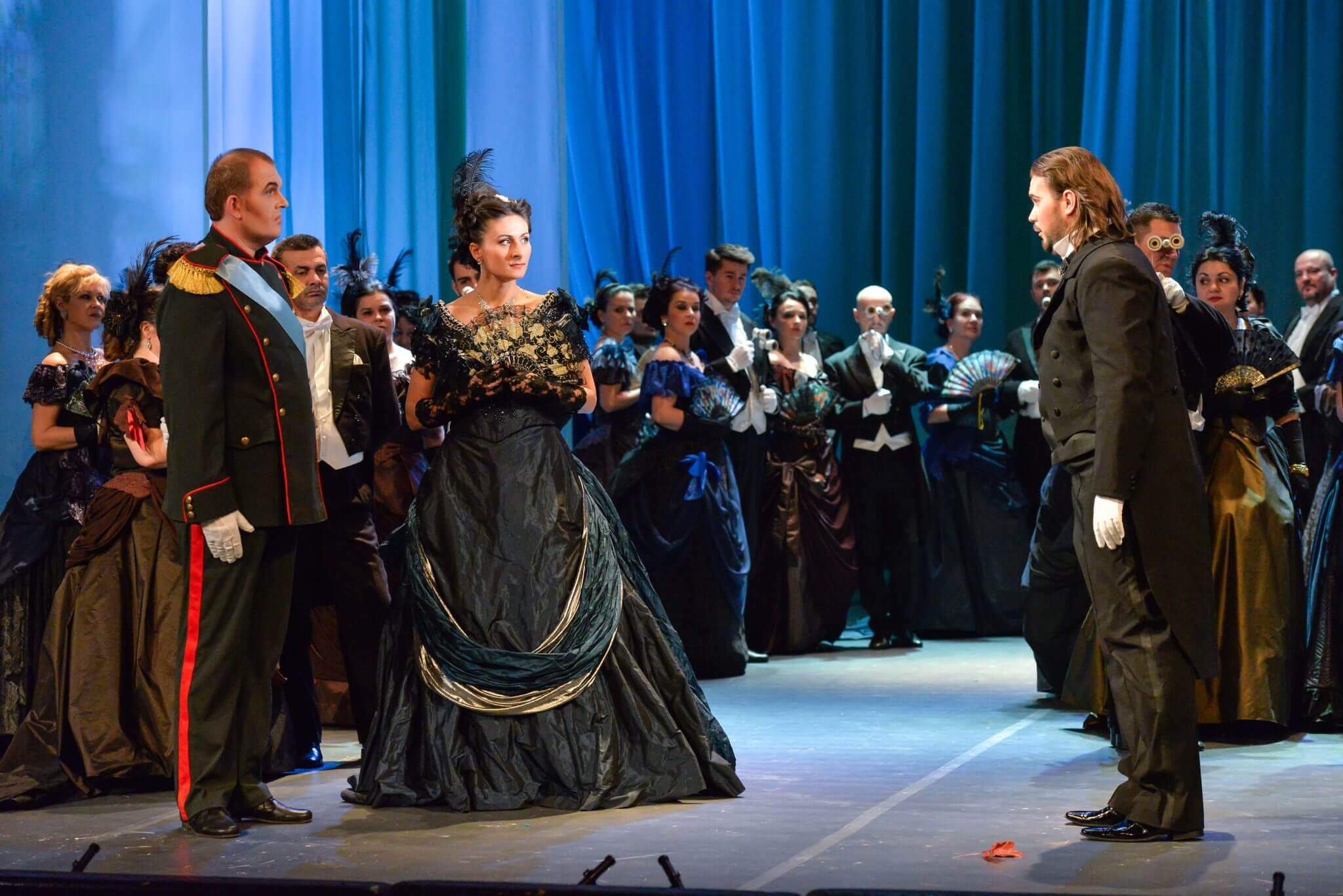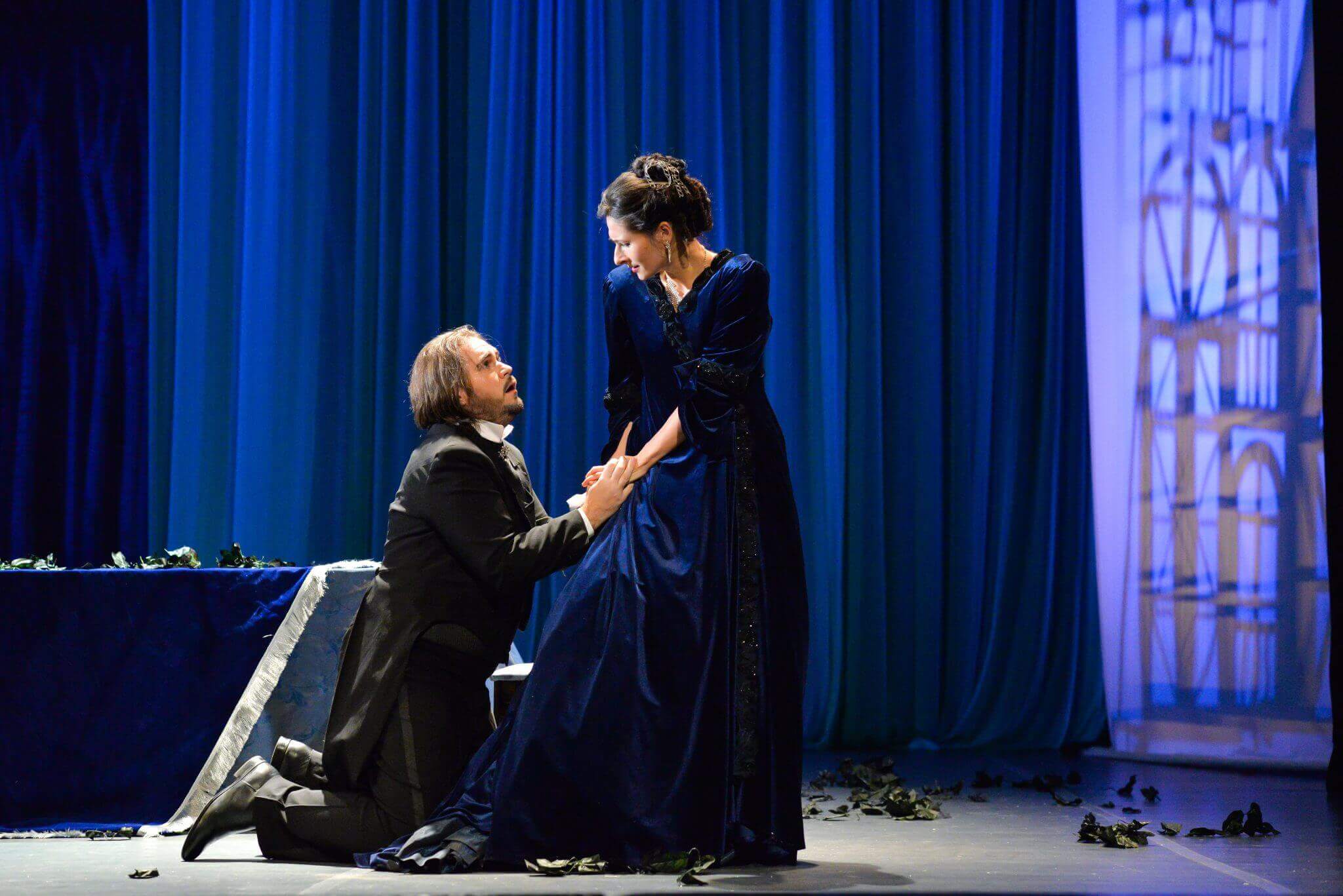
MAIN HALL
distribution
Evgheni Oneghin: Florin Estefan
Tatiana: Anita Hartig (guest)
Lenski: Eusebiu Huțan
Olga: Marina Dobrescu (guest)
Gremin: Corneliu Huțanu
Larina: Ștefania Barz
Filipievna: Liliana Feher
Triquet: Tiberiu Szasz
Zaretsky, the captain: Zoltan Molnar
Guillot: Iulian Dumitraș
Artistic direction: Mihaela Sandu
Scenography: Viorica Petrovici
Choreography: Anca Opriș Popdan
Chorus conductor: Corneliu Felecan
The Orchestra, Chorus, and the Ballet Ensemble of The Romanian National Opera of Cluj-Napoca
description
show category: opera
Opera in three acts on a libretto by Konstantin Shilovsky, inspired by the verse novel Eugene Onegin by Alexander Sergheevici Pushkin
Eugene Onegin (1877-1878) is the first of the three operas written by Russian composer Pyotr Ilyich Tchaikovsky based on texts of Alexander Pushkin, the writer whose work marks the beginning of modern Russian literature and the switch from the Romantic perception of the present to a realistic depiction of topics assumed.
The opera script, written by Tchaikovsky in one night, emphasizes the characters’ psychological patterns and their evolution during events in Sankt Petersburg, at the Larins Mansion, and around. Tatyana Larina – the type of simple, shy, melancholic, wise Russian woman – turns from a naive country girl into a high society lady, with a strong moral sense, after her love declaration made to Eugene Onegin – the Romantic character misunderstood by society, reluctant to the mediocrity of the surrounding world – is met with coldness and indifference by the loved one. The killing in a jealous duel of his best friend – Lenski – affects Onegin deeply. After a long absence and an unsuccessful attempt to cast away regrets for his deed, Eugene returns to Sankt Petersburg, where he meets again a charming Tatyana, now joined by her current husband – Prince Gremin. Onegin’s heart finally experiences the feeling he had spurned long ago, but it is too late. His love has no chance of fulfillment, as Tatyana is determined to honor her statute as a married woman.
Opera Eugene Onegin was coldly received at first by the public, a fact which Russian critic Serghei Flerov explains by the novelty of the subject, focused upon characters from daily human reality, instead of “lovers” or “rivals” the public was so accustomed to. However, the same critic praised Tchaikovsky’s work as a worthy musical correspondent of Pushkin’s text. We invite you therefore to let yourselves be transported in the atmosphere of the 19th century Russian society, where candid or passionate love, vanity, jealousy, remorse, and commitment – emotional valencies masterfully rendered in the music of the great symphony maker Tchaikovsky – leave a definitive mark upon the human destiny!
The show has two breaks and ends around 10.00 p.m.
The performance is interpreted in Russian with Romanian supertitles.
Recommended age: 12+
photo gallery
NICU CHERCIU






